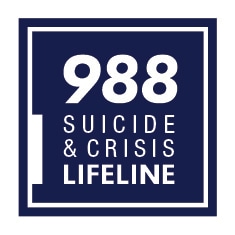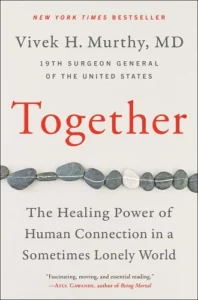The need for us to talk about suicide might seem off-focus for a blog called “Live(s) Inspiring Today”. But, the topic feels important. We are losing people of all ages to loneliness and disconnection, some with mental illness but many with no diagnosis. Alongside these stories of loss, these paragraphs celebrate people who inspire with their gift-giving, their clarity, and their appreciation for life.
Spiritual teacher Eric Triebelhorn lost his brother last year. He has also lost dear friends–one when still in high school. “If anyone mentions thoughts of taking their own life, I take it seriously. I ask questions. I check back,” he says.
It’s hard to know what another person needs or wants from us, but Lama Eric offers his simple commitment: We can listen. We can share our caring, our time, and we can express our love.
Yesterday I received a text from a contributor to the Portland Food Project.
“I’ll be out of town for the next pick-up,” Sarah wrote. “But my neighbor’s husband died, and she has two boxes of food to pass along. I’ll bring them by.”
Later that day, as we carried the hefty boxes onto my front porch I asked, “Was it sudden? Had he been ill for long?”
“It wasn’t a surprise,” Sarah said. “But still it was shocking.”
The man had posted sticky-notes all over the garage so his wife would call 911 rather than enter the house and find him.
“He was depressed for the past few years—and it got worse during Covid.”
Sharing our stories
So many of us are impacted by suicide: Sarah, like me, lost a close family friend to suicide as a child. My neighbor’s father took his life when she was a toddler. A colleague lost a niece who had gone away to college seemingly on top of the world.
A friend lost her husband after a few years of marriage. She knew he had been struggling, but he hadn’t talked of ending his life. For years after his death, his mother would call to ask my friend for answers, but she had none.
I write about suicide because it is all around us. Many of us carry stories, and stories can heal when shared.
Years ago I realized a lingering fear stuck in my body: When my husband seemed down or when he didn’t communicate much, I feared one evening I would come home from work and find him dead. This fear stemmed from my childhood loss—one we never talked about. Once I was able to realize and share these feelings and their origin, the dread dissolved. We can’t know who we touch when we share our lives.
Talking about suicide can prevent it
People who are contemplating suicide often make comments and attempt to ask for help in a round-about way, says Kate Rudigier, an acupuncturist practicing in Vancouver, Washington.
“When someone knows you care and are willing to talk directly about this serious topic, they might begin to think, ‘There’s another way.’” Be sensitive, but don’t shy away from asking direct questions is her advice.
Numerous studies and research show that asking someone about suicidal thoughts or feelings won’t push them into doing something destructive.
According to Dr. Vivek H. Murthy, former U.S. Surgeon General in his book Together, the majority of people who die of suicide have no prior diagnosis of mental illness. Feelings of loneliness and isolation lead people to feel despair, and he emphasizes how connection and community can sooth and lighten the pain.
Rates of death by suicide increased approximately 36% between 2000-2021, according to The Center for Disease Control and Prevention (CDC).
The suicide rate among males was approximately four times higher than the rate among females, and people 85 and older have the highest risk. And suicide is the second leading cause of death for young people between 10 and 24 (after accidents and homicide).
Watch this quick video from YouTuber and host of The Psych Show, Dr. Ali Mattu which advocates for breaking the silence and breaking through the stigma around suicide. He offers suggestions for anyone at risk and for all of us who might notice a friend or family member at risk.
“There’s no one-size-fits-all approach to helping a friend who’s thinking about suicide, but you can never go wrong by showing compassion and support,” writes Crystal Raypole, a writer committed to helping decrease stigma around mental health issues, in How to Help a Suicidal Friend: 11 Tips.
Questions to ask:
According to Mayo Clinic staff
How are you coping with what’s been happening in your life?
Do you ever feel like just giving up?
Are you thinking about dying?
Have you considered hurting yourself?
Are you thinking about suicide?
Have you ever thought about suicide before, or tried to harm yourself before?
Have you thought about how or when you’d do it?
Do you have access to weapons or things that can be used as weapons to harm yourself?
Notice these warning signs
It’s important to know the warning signs and be ready to act. Besides the 24/7 Suicide Hotline 988 and the online resources Lifeline (988lifeline.org) numerous organizations now offer trainings and free counsel.
If these warning signs apply to you or someone you know, get help as soon as possible, particularly if the behavior is new or has increased recently. According to the National Institute of Mental Health, notice these signs:
Continue reading “BREAKING THE SILENCE: LET’S TALK ABOUT SUICIDE”






 The other day I had my annual appointment with *Jennifer, my dental hygienist.
The other day I had my annual appointment with *Jennifer, my dental hygienist.

